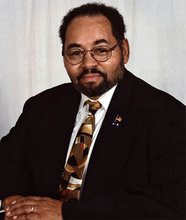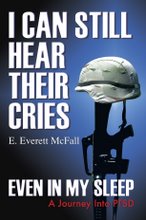PTSD Books Aim to Help Veterans
Jeff St. John
The Fresno Bee Jun 28, 2008
Related Articles:
I Can Still hear Their Cries, Even In My Sleep,
By E. Everett McFall
Wounded Iraqi Forces Say They've Been Abandoned,
Congressional Subcommittee Approves Legislation to Help Veterans
Readjust After Military Deployments
Editorial Column: Veterans United for Truth Responds to Court Ruling
Disabled Vets Face Challenges Finding a JobUS,
News Archives
June 26, 2008 -
Dr. Lorie DeCarvalho has spent the past 14 years helping
veterans cope with post- traumatic stress disorder-
the anger, depression, disconnectedness and nightmares
that can linger long after veterans have returned home
from the horrors of war.
Now DeCarvalho, the founder and director of Behavioral Health
Services for Adventist Health in Hanford, has co- written two
books meant to help veterans, their families and friends and the
professionals who treat them -- and, sadly, she knows that the
demand for this kind of help is growing.
"There are literally thousands of individuals suffering from this
condition that drastically affects their ability to function in day-
to-day life," said DeCarvalho, who is also an associate clinical
professor of psychiatry at Loma Linda University Medical Center.
Active-duty soldiers returning from the wars in Iraq and
Afghanistan can experience panic attacks or flashbacks of horrific
events they experienced on the battlefield, she said. Veterans may
find it difficult to reconnect with loved ones or to enjoy the
activities that used to bring them happiness.
DeCarvalho has studied post-traumatic stress disorder, or PTSD,
and has developed techniques to treat it during her previous years
with Veterans Affairs and at the National Center for
Post-Traumatic Stress Disorder in Honolulu.
But the two books she co-wrote with colleagues Dr. Julia Whealin
and Dr. Edward Vega are more practical "how-to" guides than
research tomes, she said.
The first, "Clinician's Guide to Treating Stress After
War," is aimed at the mental health professionals who work with
returning veterans and their families, DeCarvalho said.
The second, "Strategies for Managing Stress After War,"
is written as a "work book" for veterans undergoing treatment,
but it can also be a useful as a resource for people who are trying
to cope with a loved one suffering from PTSD, she said.
"If people want a better understanding of what veterans and
active -duty returning soldiers are dealing with, it's a good book
to pick up," she said.
DeCarvalho said there's a common misconception among some
people that PTSD is overdiagnosed in the military personnel
returning from America's wars abroad. Her experience has
taught her otherwise.
"We really haven't seen very many resources to date that
address all of the needs that veterans are experiencing when
they return from war," she said. "There is a great need."
------------------------------------------------->
The toll-free Veterans Affairs Department Suicide hotline number
is 1-800-273-TALK (8255).
Veterans Affairs Department: http://www.va.gov/
Iraq and Afghanistan Veterans of America: http://www.iava.org/
------------------------------------------------>
Flashback, Posttraumatic Stress Disorder, Suicide,
and the Lessons of WAR-- by Penny Coleman
---> I Can Still Hear Thier Cries, Even In My Sleep ...
A Journey Into PTSD --By E. Everett McFall
Both Books are Available on Amazon.com
------------------------------------------------>
SAVE ON GAS NOW!!!
www.MoreMilesPerGal.Info
Tuesday, July 1, 2008
Subscribe to:
Post Comments (Atom)







No comments:
Post a Comment